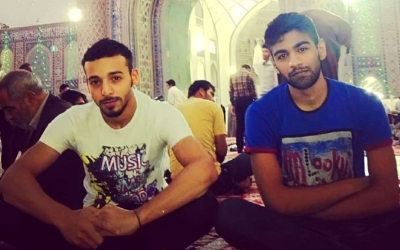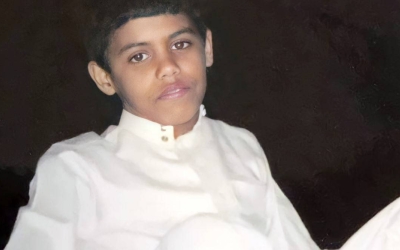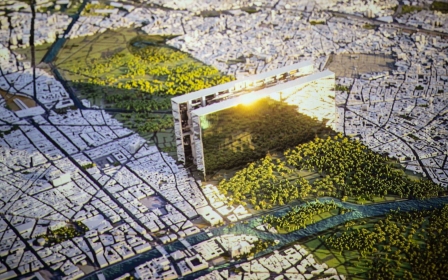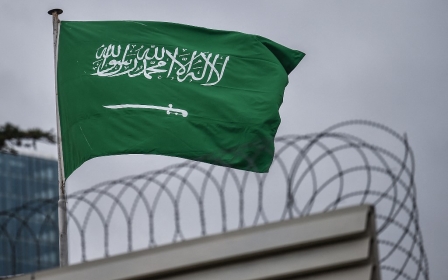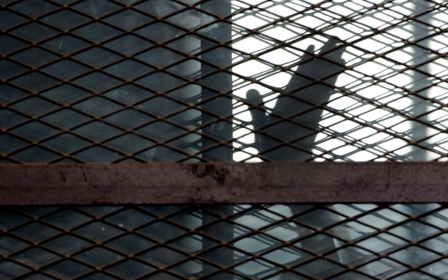Saudi Arabia executes three over officer's killing
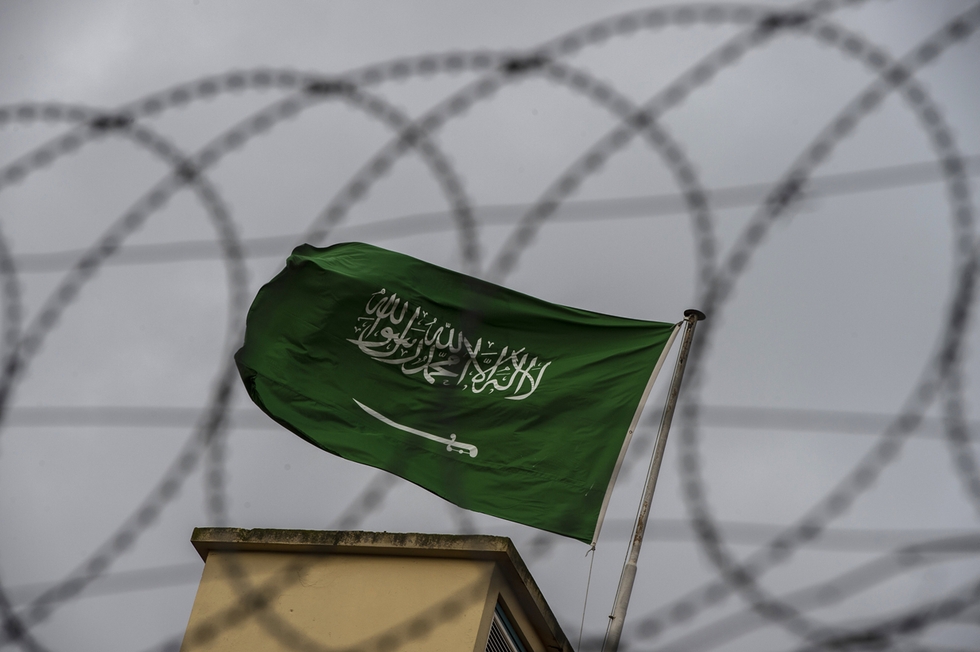
Saudi Arabia put to death three of its citizens on Sunday convicted of having killed a security officer and creating a "terrorist cell", the interior ministry said.
Since the start of the year, Saudi authorities have executed 52 people, including 20 for terrorism-related offences, according to an AFP tally.
In a statement on Sunday, the Saudi interior ministry said that the three men had killed an officer in the capital Riyadh and burned his body by setting fire to his vehicle.
They were also convicted of financing terrorism and possessing weapons, ammunition and "material used in the manufacture of explosives", the ministry said.
Authorities carried out the death sentences on Sunday in Riyadh, the ministry added.
The statement did not specify the method used, but the kingdom has often carried out executions by beheading.
Most executions for "terrorism" this year have taken place in the kingdom's eastern region where the Shia Muslim minority is concentrated.
'Deliberate confusion'
Earlier this month, Saudi Arabia executed three men from the eastern region. The interior ministry identified the three Saudis as Hussein bin Ali al-Muhaishi, Zakaria bin Hassan al-Muhaishi and Fadel bin Zaki Anseef.
It said the Specialised Criminal Court had found them guilty of "joining a terrorist cell, possessed and been trained in the use of weapons, attacking security centres and security men with the intent of killing them".
Two of them were also charged with rape and adultery.
In May, three men from the same majority Shia region were also executed for similar security charges. Last month, Saudi Arabia also executed two Bahrainis after being convicted on terrorist-related offences.
The European Saudi Organisation for Human Rights (ESOHR) director, Ali Adubisi, told Middle East Eye that there exists a pattern in Saudi Arabia of mixing criminal and security charges in execution cases.
"In general, this is a deliberate confusion to make people accept the execution and minimise sympathy. In prison, you'll find offenders charged with sodomy or adultery imprisoned for a few years, but no death sentence was issued against them," he said.
Jeed Basyouni, who leads the work in the Middle East and North Africa for human rights group Reprieve, told MEE at the time that the Specialised Criminal Court nominally hears "terrorism" cases, but it is often used to convict those critical of the government on trumped-up charges, after being "tortured into confessing to 'crimes' they didn't do".
The oil-rich eastern region of Saudi Arabia, including the Qatif area, is home to many of the country's Shia minority.
There have been sporadic protests in the region for years over accusations of widespread discrimination. Last year, at least 48 other people linked to the 2011 anti-government protests in Qatif were executed.
Adubisi said that Saudi Arabia lacks transparency in its legal proceedings and court trials, making execution cases appear as "kidnapping and killing".
Saudi Arabia is one of the world's most prolific executioners.
Last year it put to death 147 people, 81 of them on a single day for terrorism-linked crimes. The mass execution sparked an international outcry.
More than 1,000 death sentences have been carried out since King Salman assumed power in 2015, according to a report published earlier this year by British-based Reprieve and the ESOHR.
Juvenile law
Adubisi also warned of the imminent execution of nine Saudis who were either arrested when they were under 18 years old or were arrested when they were adults but were accused of acts they committed when they were children.
"We are sure that nine minors are waiting [for] executions. The level of security services infiltration in the society is unprecedented, and there is a general terror, something I have not witnessed in the past five decades," Adubisi said.
The ESHOR named the nine as Abdullah al-Hwaiti, Jalal al-Labad, Abdullah al-Darazi, Youssef al-Manasif, Jawad Qureiris, Hassan Zaki al-Faraj, Ali Hassan al-Subaiti, Mahdi al-Mohsen and Ali al-Mabiyouq.
Duaa Dhainy, an ESOHR spokesperson, said that their cases are currently before the Supreme Court.
"It is not possible to know whether they have been approved or not, and therefore the date of execution cannot be known," she said.
In 2018, Saudi Arabia introduced the Juvenile Law, which stipulated that for crimes committed by minors requiring the death penalty, juveniles should be admitted to detention centres for a period not exceeding 10 years.
However, the government carved out exceptions to the law that made it clear that the Juvenile Law as a whole, including those sections which define juvenility, does not apply in certain circumstances.
In April 2020, Saudi Arabia introduced a royal decree allowing the law's provisions to be applied retrospectively.
Middle East Eye propose une couverture et une analyse indépendantes et incomparables du Moyen-Orient, de l’Afrique du Nord et d’autres régions du monde. Pour en savoir plus sur la reprise de ce contenu et les frais qui s’appliquent, veuillez remplir ce formulaire [en anglais]. Pour en savoir plus sur MEE, cliquez ici [en anglais].


